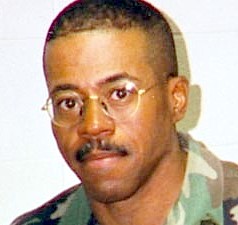Charles Monroe King killed by I.E.D.
 By the time an explosion killed First Sgt. Charles Monroe King in Iraq on Saturday, the soldier had put two decades between himself and Mobile, which is listed by the U.S. Army as his hometown.
By the time an explosion killed First Sgt. Charles Monroe King in Iraq on Saturday, the soldier had put two decades between himself and Mobile, which is listed by the U.S. Army as his hometown. King's ties to the city remained strong, however, as phone calls from Alabama poured into his family's Ohio home Wednesday.
"God is just continuing to work miracles in our lives," King's sister, Gail King, said from her parents' home in Cleveland on Wednesday afternoon.
Charles King, 48, was raised in the same area of Cleveland where his parents, Charlie and Gladys King, still live. He lived in Mobile for just a few years in the 1980s, before joining the Army.
As a soldier, King was "highly decorated," according to Margaret Brewster, a spokeswoman at Fort Hood, Texas, where King was based. He served as the top enlisted soldier in his tank company and was a veteran of the first Gulf War, Brewster said.
On Saturday, Charles King and two other members of the 1st Battalion, 67th Armor Regiment, 2nd Brigade, 4th Infantry Division were killed in Baghdad when an improvised explosive device detonated near their Humvee, according to Army sources.
King's Mobile connections likely started with his father, Gail King said.
Shortly after graduating from the Art Institute of Chicago in 1983, Charles King took a job as a fashion and product illustrator for Gayfer's department store in Montgomery, according to a job application.
About a year later, he moved to Mobile, his father's hometown, Gail King said, and was hired as an advertisement illustrator at the Press-Register.
"He was a hard worker," said Sheridan Paz, a Press-Register employee, who started working in the advertising department around the same time as King.
The department created images not only for advertising but also for news stories, Paz said, and King was meticulous about his work.
King worked for the Press-Register for just six months but remained in Mobile after his tenure at the paper. He married Cecelia King of Mobile in December 1987, just two months after he enlisted in the Army.
The couple, who later divorced, had a daughter, Christina, now 15. She lives with her mother in Kileen, Texas.
"My brother was very humble about his military experience and all the things he had accomplished," Gail King said.
His numerous awards included the Bronze Star, the Meritorious Service Medal, the Army Commendation Medal, the Army Achievement Medal and the Army Valorous Unit Award, she said.
The artistic talent that brought Charles King to the Press-Register continued to play a significant role in his life, even after he traded in a civilian career in art for a life of military service.
"Not only was he a great soldier, a great father, a great son, a great brother, but he was a great artist," Gail King said.
When Charles King was about 13, King's mother enrolled him and his sister in an art class at a community college near their home, Gail King said.
While she "failed miserably," she said, her brother fell in love with art.
Charles King listed illustrating a children's book as one of his previous jobs on his Press-Register application.
After he joined the military, Gail King said, he became fascinated with the service of the 761st Tank Battalion, an all-black unit that fought during World War II.
Charles King drew several illustrations depicting the unit in battle, Gail King said, and his work was displayed in the Pentagon during a Black History Month celebration in the late 1990s at the Pentagon.
More of Charles King's work is now on exhibit at military museums at Fort Lewis near Tacoma, Wash., and Fort Knox, Ky.
With his talent, King likely could have pursued a successful civilian career in art, but, Gail King said, a sense of duty seemed to pull him to the military.
"My brother was very much into service and serving others, and I think that really was the driving force," she said.
While in Iraq, Charles King kept his sights on another driving force that fueled him to create a 200-page journal about his life.
In addition to short stories from his childhood and even a few excerpts about working in Montgomery, King's main mission became laying out detailed guidelines for his 6-month-old son, Jordan Canedy King.
"He said it was therapy for him," said Dana Canedy, Jordan's mother and King's fiancee. "He wanted his son to know everything he could tell him."
Away in Iraq when Jordan was born, Charles King saw his son just once, about a month before his death. During a two-week leave, he could barely let go of the baby, Canedy said.
On Wednesday, Canedy, an editor for The New York Times, tip-toed into her son's room to grab the journal while he slept.
She leafed through the pages and read some of the advice King left his son, including instructions on everything from how to deal with disappointment to how to treat women to letting him know it was OK for boys to cry.
"He was this big muscular guy," Canedy said, "but he was like a big pussycat."
From the Mobile Register

<< Home